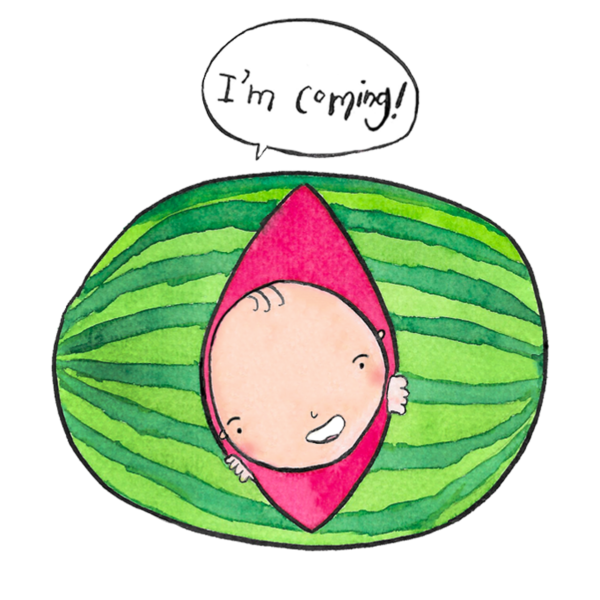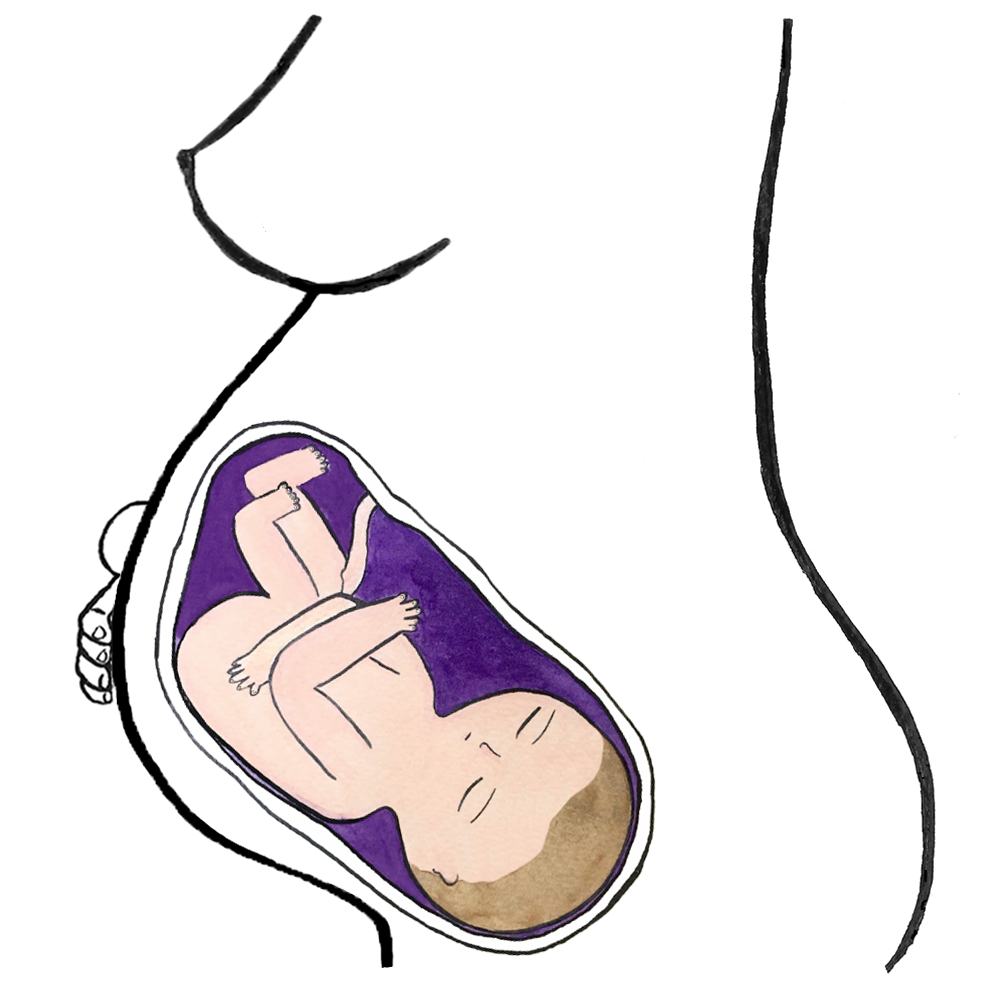39 weeks pregnant
Weekly update

Congratulations! Your Child is now a full-term baby! To facilitate Your Child’s descent and stimulate labor, go for a walk anytime you can.
Your Child’s development
By this week, Your Child is officially considered a full-term baby.
Your baby hears you: Your Child can already recognize your voice, and the brain continues to develop, as it will after birth.
Crying without tears: Lacrimal gland, a gland that produces tears, has completed its development, but tear ducts are still under development. So, Your Child will not be able to cry with tears. It will take a few months for the process to complete.
The little one now weighs between 3 Kg and measures about 50 cm in height — the size of a small watermelon.

Your development
Toward the end of your pregnancy, the amount of discharge increases further.
If this is thick and contains mucus and blood, it might be a bloody show, meaning that the cervix has started to prepare for labor.
As Your Child moves further down your pelvis, you may experience more back pain and increased pressure at the lower end of your bump.
See your doctor if you experience painful contractions that last more than 60 seconds and come every 5 minutes.
As you wait for labor to start, continue monitoring Your Child’s kicks. A sudden drop in the number of kicks could mean that Your Child is not well, and you have to let your doctor know immediately.
What you can do now
If your doctor warns you that Your Child is getting too big, you may be advised to reduce sugar intake to prevent your baby from becoming excessively massive.
Get ready for the first week: The first week after childbirth is always busy, so be sure that your home, your family, and yourself are ready for Your Child. Expect a lot of crying from Your Child and be ready to respond to the cries. Until your baby learns to talk, crying is the only way to communicate with you about hunger, discomfort, and other needs.
Learn about positive parenting: You might also want to pass your time reading about positive parenting.
Punishment, for example, may stop unwanted behaviors immediately, but it doesn’t teach your child how to behave well. Young children don’t have the capacity to logically understand and connect the dots between your anger and how they ought to behave next time. Also, keep in mind that for Your Child to learn to self-regulate, the frontal cortex has to mature, which happens with age.
Punishment can further harm your child and also negatively affect your relationship, so it’s better to look for alternative methods to raise Your Child into an emotionally healthy and responsible adult. It’s for this reason that most specialists in the field of child development recommend positive parenting.
Verified:
Dr. Wanwadee Sapmee Panyakat (OB-GYN), license no. 41208 (20 October 2021)
Sources:
- 39 Weeks Pregnant - The Endowment of Human Development
- 39 Weeks Pregnant - Third Trimester - National Health Service
- Parenting Without Punishment: A Humanist Perspective, Part 1, Psychology Today
- Why Punishment Doesn’t Work, Evolutionary Parenting
- Keith Moore, The Developing Human: Clinically Oriented Embryology, 10th Edition, Elsevier Publishing, 2016



